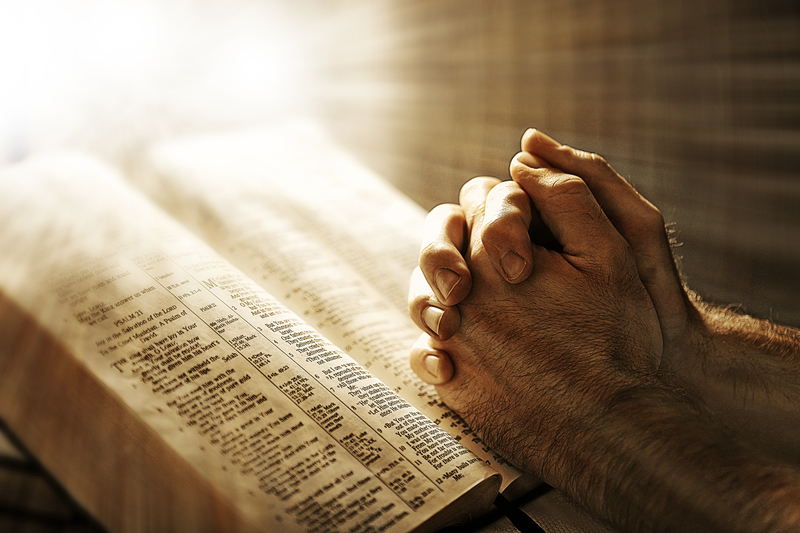
The efficacy of יום כפור is succinctly expressed in a verse from our parasha כי ביום הזה יכפר עליכם - It is on this day that כפרה will be upon you. It is therefore befitting that this verse serve as the culmination of the three ודויים - confessions of the כהן גדול during theיום כפור service.
Patterned after this Temple service - the וידוי - confessions take a place of prominence in the liturgy of יום כפור - It is found both in the סדר העבודה של חזרת מוסף - as well as in all of the five תפלות of the day. We know that legally (MT - HT 1:1 - 2:5) the stages of תשובה - repentance - which are remorse and the resolve not to sin again - remain incomplete - if not finalized via וידוי- or verbal confession of sins committed. The custom evolved to recite the וידוי almost thrice daily - as part of the liturgy. What is certain is that whether in the yearly or daily cycle כפרה can only be achieved if preempted by Vidui.
The Hinukh (364 - Bem 5:6) cites the ruling of Rambam based on the Talmud (Taanit 16) that repentance means that the sinner must abandon his sin (remove it from his heart and thoughts) and resolve in his heart not to do it again - as it is written (Yishaya 55:7) Let the wicked forsake his way and the man of iniquity his thoughts. After that he should confess it (verbally) as it is stated (Shem 32:31) -And they have made them a god of gold. Then he must mention explicitly that he will not go back and commit the sin once more.
As it is stated in Hoshea (14:4) And we will say no more "our god" to the work of our hands. A literal translation of the Hebrew words for confession and atonement can provide a gateway into the spiritual effects of the three way process of Teshuva - Vidui - Kapparah.
Understanding the Terms of Vidui and Kaparrah
In the Siddour of the יר״א - R. Y. R. Abulafia - a prominent 19th century head of Yeshivat Bel El - It details the spiritual effects of sin and its final repair via the וידוי - When one sins in a מצוה לא תעשה - he causes three negative forces to become aroused which conceal the Hasadim - or spiritual mercies that surround and encloth the soul of the individual and that of the nation to be hidden.
Via the two stages of תשובה the mercies are extracted from the grasp of negativity. These then need to be revealed once again and brought back to the side of holiness. The word וידוי expresses its purpose - it literally means to reveal - to bring back these hasadim - divine mercies back to their place. It is via וידוי or the revelation of the lights that כפרה can then be achieved.
The verse cited earlier reads כי ביום הזה יכפר עליכם - It is on this day that the כפרה will be upon you - R. M. Bukayim - מאיר לארץ - warns us not to follow the common translation of כפרה in terms of atonement and forgiveness - but rather in literal terms of offering a cover or clothing for Israel. This is how it is used in the word כפורת or the cover that is over the ארון - Similar usage is found as in Beresheet 6:24 where Noah was told וכפרת אותה to "cover" the ark with asphalt or pitch.
Evidently the Creator details what can be achieved on this day if certain conditions are met. Namely this is a day that one can regain the spiritual lights or soul cover that one had lost due to unwarranted activities committed in the previous year.
The Alef Bet Ashamnu Formula for Vidui
Our Rabbi's (Geonim) have formulated the public confession called אנא in a specific alphabetical format. One who is particular will use the order which includes the general sin category of all twenty two letters along with the five final letters - אשמנו בגדנו - Theסידור הרש״ש - details the specific location in the highest of the spiritual world of אצילות where the (five) hasadim via the וידוי will now be emanating once more.
Based on the writings of R. HaAri the hasadim or spiritual mercies descend in clusters of five. We are to take our right hand (hesed) - forming a fist with the five fingers - and pound lightly on our chest at the recital of each category of sin.
The physical chest חזה is parallel to the spiritual place to where all of these mercies need to descend and be revealed. This together with the verbal part of וידוי - will once again "reveal" these חסדים which had been confiscated as a result of sin.
The תשובהone does releases them from the clutches of evil and the וידוי reveals them in holiness once more. This of course is the כפרה that we all seek - to re-cover our souls with the holy heavenly lights of mercy.
Importance of Confession in Tanakh
We know that biblically the admission of guilt is extolled - as this represents the reintroduction of the light or covering of the soul that was exposed as a result of the sin. We see ה׳ mitigating his rebuke of קין when the latter admits his sin. יהודה publicly admits his transgression and is forever praised. עכן is exhorted by יהושע to confess stealing the forbidden spoils. דוד after being censured by נתן הנביא confesses and is forgiven - This leads us the harsh result of שאול not having admitted to his fault.
This evidently caused the lights associated with the covering of his soul to remain concealed above. Hence his role as King would be taken away. This is true of not only the lights that clothe the individual but also the lights that surround the soul of the nation. Hence - besides the confessions of the כהן גדול on יום כפור - we also find משה confessing (32:31) on behalf of the people after the sin of חטא העגל - Later (9:7) on עזרא confesses "From the days of our forefathers we have been in great guilt" and his colleague נחמיהsimilarly confesses on behalf on the nation (1:5) אנא ה׳ ...ומתודה על החטאות -
Yehi Shem!!!
The halakha dictates that on certain days of the year the וידוי is eliminated from the daily liturgy. In the Sephardic congregations these days are met with excitement - as many remind the שליח ציבור that וידוי - is not to be said - but instead he should skip directly to יהי שם - Why is this? Do not the חסדים need to be revealed to the place of holiness?
It appears to me that these days themselves contain aspects of קדושה whereby the Hasadim are revealed without the need for a daily וידוי- This fits well with all of the days ordained by our Rabbi's to skip וידוי - But how about when the אבי הבן is praying in the minyan? It is merely by his presence that the Minyan can skip reciting the וידוי - In this instance R. Y. Hayyim suggests however - that the congregation meditate - and connect themselves with another congregation who are indeed reciting the וידוי that day.
There are other days in the year that have been declared by the Chief Rabbinate in Israel to skip וידוי due to the miracles which occurred on that same day in a previous year. Can we say that there is also an inherit holiness in the day itself to warrant the skipping of וידוי - especially considering the fact that there is still a large contingent of Rabbi's who do not recognize any inherent holiness of the day? Why couldn't we recognize the miracles that God has bestowed on us via the recitation of הלל after the prayer while still reciting the וידוי- confession?
We can thereby thank God for all the miracles he has performed on that day in an earlier year - but at the same time continue to draw down the חסדים to a place of holiness? I realize that this position proposed here is untenable to both camps. The camp for Hallel/Yehi Shem and the camp of No Hallel/Vidui. Hence at the risk of losing friends on both sides - I would suggest the following. If praying in a minyan who recite the וידוי on a day such as יום העצמאות - recite it with them - making sure that you recite at least חצי הלל after the prayer alone. If praying in a minyan who do not recite the וידוי - then very privately without the notice of others - he can recite the וידוי between him and himself.
After the prayer he can recite the הלל with the rest of the congregation - as we truly have so much to praise ה׳ for. Why not praise God and at the same time say the וידוי to insure that the חסדים are revealed? I am not so sure that the recitation of חצי הלל along with וידוי are incompatible -Especially if we approach the וידוי as we have attempted to above.








